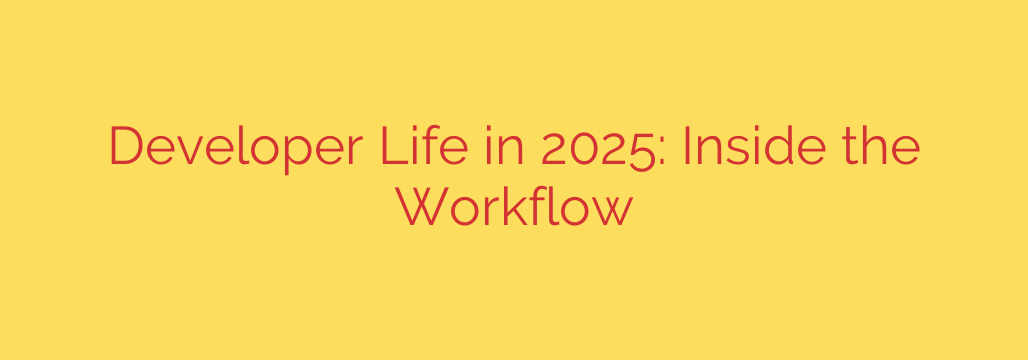
The world of software development is constantly evolving, and by 2025, the day-to-day workflow of a developer is expected to look significantly different. Driven by advancements in artificial intelligence, automation, and collaborative technologies, the focus is shifting towards efficiency, speed, and greater strategic thinking.
One of the most impactful changes anticipated is the integration of AI into coding assistance. Forget simple autocomplete; future tools will offer sophisticated code suggestions, automatically identify and fix bugs, and even generate boilerplate code from natural language descriptions. This doesn’t mean developers will be replaced, but rather augmented, freeing up time from tedious tasks to focus on complex problem-solving, architectural design, and innovation. The core skill will shift from syntax mastery to understanding and guiding AI assistants effectively.
Collaboration is also set for a transformation. Real-time collaborative coding environments will become standard, seamlessly integrating communication, version control, and testing. Tools will likely become more proactive, perhaps flagging potential conflicts or suggesting code reviews based on impact before they even happen. Distributed teams will rely heavily on sophisticated virtual workspaces that replicate the fluidity of in-person interaction.
The development environment itself will continue its migration to the cloud. Cloud-based IDEs and development platforms will offer instant setup, powerful computing resources, and consistent environments across teams. This reduces local machine dependency and simplifies onboarding and project switching. Infrastructure-as-Code (IaC) will evolve further, making environment provisioning even faster and more reliable.
Furthermore, the line between development, operations, and security (DevOps and DevSecOps) will blur even more. Automated testing, deployment pipelines, and security scanning will be integral parts of every developer’s workflow, not separate stages. Developers will need a stronger understanding of infrastructure and security principles to build resilient and secure applications from the start.
Key takeaway skills for developers looking ahead include:
- Proficiency in leveraging AI-powered coding tools.
- Mastery of cloud development platforms and services.
- Strong understanding of automated CI/CD pipelines and DevSecOps practices.
- Enhanced collaboration and communication skills for distributed teams.
- Focus on system design, problem-solving, and understanding business logic over low-level coding.
While tools and processes will automate many current tasks, the demand for creative, skilled developers capable of complex design, critical thinking, and adapting to new technologies will remain high. The workflow of 2025 promises to be faster, more collaborative, and intellectually stimulating, demanding continuous learning and a willingness to embrace change.
Source: https://www.helpnetsecurity.com/2025/07/11/docker-2025-developer-trends/








